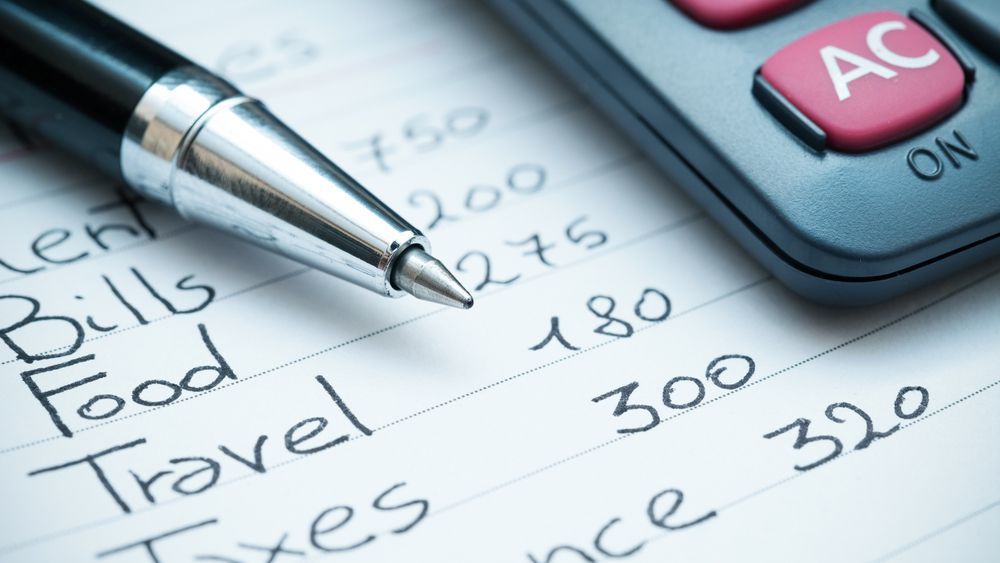The cost of living crisis has dominated headlines this week after the Office from National Statistics (ONS) revealed that inflation rose to 5.4% in November.
Inflation rates, a measure of how much prices are rising, hit the highest level seen since 1992 with some predicting a rise to 6% by this spring.
In short, it means that the cost of everyday items, such as groceries, have soared with wages failing to reflect the change.
Throw higher energy bills and April’s expected National Insurance increase into the mix and it’s clear to see why 2022 is being dubbed the ‘year of the squeeze’.
In our latest blog, we discuss what a cost of living crisis is and the reasons behind it as well as how it could affect the pound in your pocket.

Why choose Creditfix?
- Write off unsecured debts over £6,000
- Stop interest and charges soaring
- Reduced payments from £110 per month
What is a cost of living crisis?
The cost of living crisis has been created by a perfect storm of rocketing bills and tax rises.
In simple terms, it refers to a time when everyday costs rise while wage levels fail to keep up.
This current crisis is being driven by various factors, with UK households facing increased prices across the board. In fact, some economists have said incomes could be hit even harder than during the financial crash of 2008.
Soaring energy prices and the National Insurance increase expected in April are just two major factors in the rise in inflation. The impact of COVID-19 on global supply chains has also led to price rises and the end of the financial support put in place during the pandemic are also playing a part in pushing the rate higher.
What’s more, in a stark warning the Institute for Fiscal Studies estimates that a person who earns an average salary of £30,000 will see their pay cut by £1,600 per year highlighting the dramatic impact on personal finances.
Shoppers feel the pinch
As the conversation continues around the cost of living, the rising cost of everyday supermarket items is one of the biggest concerns for Brits.
In fact, according to research by retail analysts Assosia, a basket of common groceries costs an average of 6% more than last year.
This week author and hunger relief campaigner Jack Monroe took to Twitter to highlight the huge jump in grocery costs in recent years.
The Essex mum blasted recent cost of living figures, saying stats “grossly underestimate the real cost of inflation as it happens to people with the least.”
Tweeting from her @BootstrapCook handle, she highlighted the astronomical price rise in basic items in her food shop.
In a series of Tweets that have captured the nation’s attention, she stated: “This time last year, the cheapest pasta in my local supermarket was 29p for 500g. Today it’s 70p. That’s a 141% price increase.”
Other standout figures from her shop at one of the “big four” supermarkets include a price hike from 45p for a kilogram bag of rice to £1 for 500g – that’s a 344% increase and a direct hit to the pockets of the most vulnerable.
Tax rises on the horizon
Taxes, as always, are another cause for financial concern but this year more than others.
Figures show that Brits now face the highest tax burden since 1950 as we continue to navigate the pandemic and face life post-Brexit.
So just what exactly can we expect?
The National Insurance increase due this April will see a 1.25% rise. While this is hoped to help tackle the backlogs in the NHS as well as historical underfunding of the social care sector, the increase will have a direct impact on personal spending for thousands.
One million people could also be forced to pay a higher rate of income tax by 2026 as tax hikes continue. Plans are in place to freeze the income tax threshold which would drag 1.2 million more into the 40p tax band.
While the higher income tax rate starts at £50,070 an additional 1.5 million low earners will be captured by the basic 20p rate which starts at £12,570.
Economists have warned increasing taxes during a strained economy could risk recovery with many urging Chancellor of the Exchequer Rishi Sunak to reconsider the plans.
How we helped Michael
"Professional staff - they were understanding and non-judgmental. Fantastic, quick service too. Would recommend to anyone!"
Michael, Sunderland
Energy prices expected to surge by 50%
Another factor driving the rise in inflation is the surge in energy prices.
The increase in costs is being driven by global demand for oil and gas. It’s more expensive for suppliers, therefore, it’s more expensive for clients.
And as the Energy Price Cap is expected to rise by approximately 50% in April, allowing providers to increase default tariffs, there are serious fears for low-income families who face heating their homes or eating.
According to a YouGov survey published by The Times 33% of people say they expect their fuel to be unaffordable this year. The stat comes as it was revealed that the average household electricity bill could jump from £1,277 per year to as much as £2,000 from April.
What help is available?
If you’re worried about the cost of living increase it’s important to be aware of the support available.
One of the first things you should do is make sure you’re aware of the benefits you’re entitled to. You can find out more about checking your benefits entitlement and how to access help in our Debt and Benefits guide.
It’s also important to plan and stick to a budget as much as possible. Knowing how much money you have coming in and how much you’ll need to spend each month will allow you to make the most of the available cash you have.
Planning a budget might seem daunting but is made easy with our free budget calculator.
If you’re living with debt and are concerned about how the changes to the cost of living will impact your payments, don’t panic.
Again, it’s important to be aware of the help available. If you’re struggling to keep up with payments, don’t bury your head in the sand.
At Creditfix our experts specliaise in offering debt help to people from all walks of life and can help find a solution suited to your needs.
Where can I get more advice on Cost of living soars to record levels and other debt solutions?
To discuss your options and get the support you need to deal with your debt today, contact us now on 0800 0431 431 or click the button to get started




